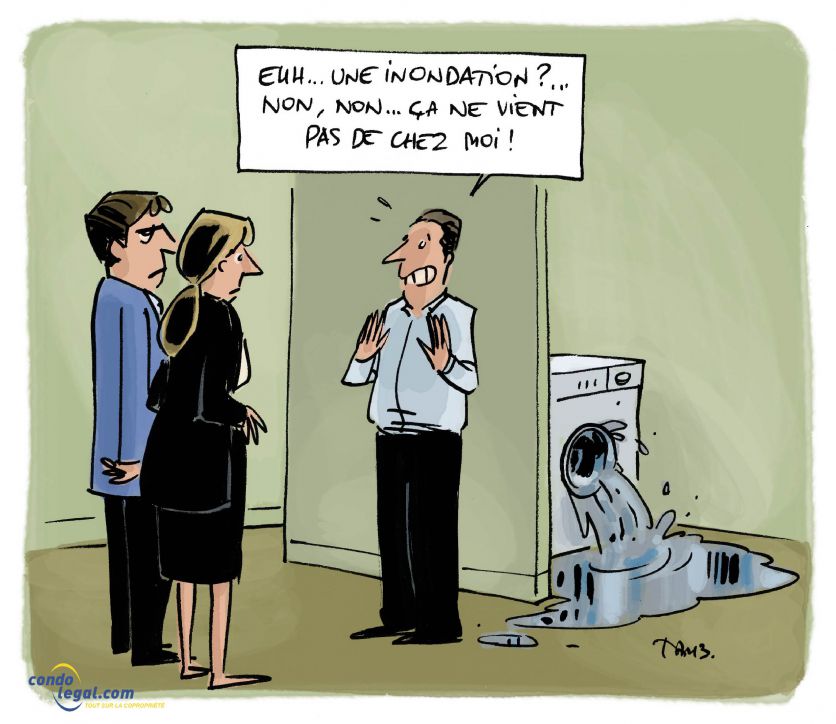Date published: 23/06/2024
Declaration of co-ownership and contractual liability
 Declarations of co-ownership generally include a clause that holds each co-owner responsible (towards the other co-owners and the syndicate) for damages caused by their fault or negligence and by the fact of a property for which they are legally responsible. In the case Syndicat de la copropriété 650 Marcel-Laurin c. Neng (2024 QCCQ 2022), the Court of Quebec issued an interesting decision regarding the validity of the contractual liability regime stipulated in a co-ownership declaration.
Declarations of co-ownership generally include a clause that holds each co-owner responsible (towards the other co-owners and the syndicate) for damages caused by their fault or negligence and by the fact of a property for which they are legally responsible. In the case Syndicat de la copropriété 650 Marcel-Laurin c. Neng (2024 QCCQ 2022), the Court of Quebec issued an interesting decision regarding the validity of the contractual liability regime stipulated in a co-ownership declaration.
The dispute concerned an incident that occurred on January 19, 2021, when water from the toilet in the unit of a co-owner caused damage to neighboring units. The syndicate of co-owners claimed damages from her, alleging that she had not properly maintained the toilet and should be held responsible under the "strict liability" regime provided in the co-ownership declaration.
The co-owner asserted that she had always acted prudently and diligently. She also argued that the strict liability clause was contrary to the Civil Code of Quebec and should be deemed null and void. In this sense, she contested the validity of a clause imputing faultless liability to a co-owner.
The court first recognized that the co-ownership declaration constitutes a contract and that the non-performance of contractual obligations falls under its own liability regime. However, it specified that the notion of "strict liability" is foreign to this regime.
However, in analyzing the latest version of article 1074.2 of the Civil Code of Quebec, the judge specified that by adding the words "and in other cases provided for in this Code" and then referring to "damage caused by the act or fault of another person or by the fact of the property under his custody," the legislator was referring to articles 1459 to 1469 of the Civil Code of Quebec, which pertain to extra-contractual liability. He added that "referring to legal presumptions relating to the sphere of extra-contractual civil liability has no impact on the determination of the applicable civil liability regime" (paragraph 46). "It is the source of the obligation whose performance is sought that determines the applicable civil liability regime" (paragraph 47). "If the obligation is contractual, the legal situation submitted to the Court will be analyzed based on the rules applicable to contractual civil liability" (paragraph 48). He also affirmed that "no legal principle prevents the legislator from 'contractualizing' concepts related to the sphere of extra-contractual civil liability" (paragraph 49).
The judge concluded that Article 1074.2 of the Civil Code of Quebec is a powerful indicator of the legislator's intention to "contractualize." However, he added that the second paragraph of this article imposes a limit on contractual freedom regarding the possibility of increasing in advance the intensity of contractual obligations concerning the liability for property under a person's custody. He even mentioned that the legislator has made it a matter of public order, so it is not possible to foresee an intensification of the obligation beyond an obligation of means.
That being said, the judge determined that the syndicate had not succeeded, in this case, in proving that the co-owner had failed to meet her maintenance and repair obligations for the toilet. Thus, the Court dismissed the syndicate's claim, stating that Ms. Liu could not be held responsible for the incident under contractual liability, including the "contractualization" of concepts concerning property under one's custody.
Nevertheless, this decision emphasizes the importance of rigor in drafting and applying liability clauses in co-ownership declarations, confirming the validity of the contractual liability regime when properly stipulated.




